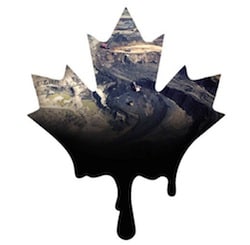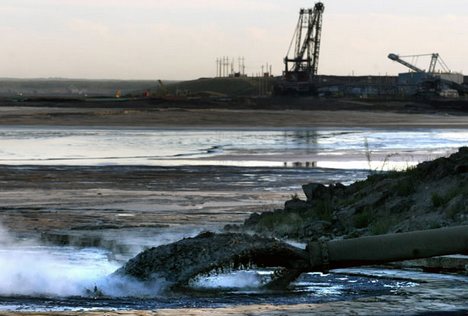Canadian Prime Minister Stephen Harper is in China this week to meet with Chinese leaders about how both countries can profit big by exploiting China’s shale gas reserves, as well as by importing Canadian tar sands oil. Harper is scheduled to meet with both Chinese officials, as well as heads of oil and gas companies during his four-day visit to the country.
More on the specifics of who will be attending these meetings, from Reuters Canada:
During his trip Harper will meet President Hu Jintao and Premier Wen Jiabao as well as two important regional players – Chongqing Communist Party chief Bo Xilai and Wang Yang, the chief of Guangdong province.
The Canadian mission, which will arrive in Beijing on Tuesday, is the largest of its kind since 1998. Guests include top executives from Shell Canada, Enbridge and Canadian Oil Sands as well as uranium producer Cameco Corp and mining firm Teck Resources Ltd.
Other firms include plane and train maker Bombardier Inc, Air Canada, Eldorado Gold Corp, SNC-Lavalin Group Inc, Canfor Corp and West Fraser Timber Co Ltd.
After the United States’ rejection last month of the Keystone XL pipeline, Canadian officials are hoping to reap a profit in the world’s largest emerging market. But any energy trade deals would certainly benefit both sides, as just last week PetroChina, parent of China’s largest oil producer, purchased a 20% stake in a Canadian shale gas project being run by Royal Dutch Shell.
Chinese oil companies are hoping that their cooperation with Shell and the Canadian government will help them use these valuable resources to teach officials more about the process of extracting shale gas, mostly through fracking.
Just last year, with some financing through other Chinese oil companies, Shell invested more than $400 million in Chinese shale gas projects, which included the drilling of at least 15 different shale extraction wells.
Shell estimates that China sits on larger shale reserves than any other country. Chinese oil companies have already begun other shale gas fracking projects over the last few months.
Even as China aims to depend more and more on renewable energy in the decades ahead, they’re taking an “all of the above” approach when it comes to energy generation, opening the floodgates for multinational energy companies and becoming ever more open to things like fracking and the importation of dirty tar sands oil.
Harper’s meeting with President Hu Jintao and the energy industry representatives has only one clear purpose – to seal a deal to export as much dirty energy from Canada to China, while at the same time create a network of investment that flows freely between the two countries’ dirty energy industries.
Harper even opened a Canadian tourism office in Beijing when he arrived in China today. Let’s say that chances are strong that the tourist board won’t be encouraging Chinese tourists to visit the tar sands tailings ponds.
Subscribe to our newsletter
Stay up to date with DeSmog news and alerts







